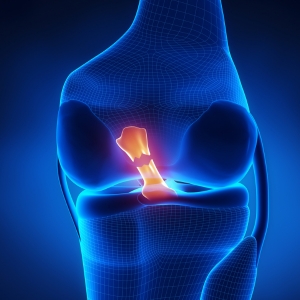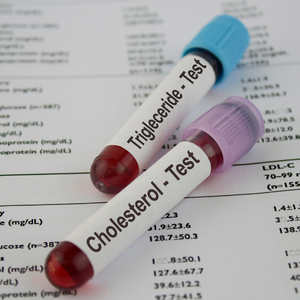Depression is a common problem among people living in a stressful and fast-paced environment. The word depression is commonly used to describe many feelings, such as being sad, ‘blue’, miserable or upset. However, a person can feel all these emotions without suffering from clinical depression. The difference lies in the duration and severity of the feelings. Clinical depression is a mental, emotional and physical state that is intense, long-lasting and significantly affects daily life. It is a pervasive psychological condition, not just a mood that someone can snap out of easily.
Depression differs from grief
It is also important to distinguish depression from the sadness naturally experienced after the loss of loved ones. Although the momentary grief associated with loss is often intense, such emotions are normal and functional. They allow people to mourn and then adjust to their new life after the loss. Depression, on the other hand, is not functional or healthy. Instead of providing people with new avenues for development and growth, depression often robs them of finding meaning in their lives and inhibits their daily functioning at work or at school.
Depression is not something to be ashamed of… and it is highly treatable
Depression is not something to be ashamed of or guilty about, nor is it a character flaw or a sign of weakness. Most importantly, depression is not permanent. The chances for complete recovery are excellent. A number of psychological and drug treatments are effective and readily available.
What are the signs to look for?
Depressed people can experience a couple or many of the following symptoms:
- Feeling sad or empty
- Sleeping problems
- Worrying and negative thinking
- Feeling helpless and hopeless
- Irritability and agitation
- Loss of interest and energy
- Poor concentration
- Change in appetite
- Loss of confidence
- Feeling guilty and worthless
- Reduced libido
- Suicidal thoughts
How is depression treated?
There are two major forms of treatment for depression that may be used individually or in combination, depending on the type and severity of depression.
Psychological treatment
Psychotherapy provides the opportunity to share and work through difficulties in a supportive and confidential environment. It offers skills and strategies to alter thinking patterns, behaviours and lifestyle choices that contribute to depression. Two of the most well-researched treatments are called Cognitive-Behavioural Therapy and Interpersonal Therapy. These approaches are structured, goal oriented and solution based. Cognitive-Behavioural Therapy is particularly effective in helping to reduce and control thoughts associated with depression and to develop long-term coping skills to minimise future episodes.
Medication
One aspect of depression is a change in the balance of chemicals in the brain, which impact on mood and can contribute to feeling low, sad and fatigued. Antidepressant medications are drugs that help restore the chemical balance and to alleviate biological symptoms especially in severe cases of depression.
Combination treatments
A combination of medication and psychological treatment may be the most helpful treatment modality. In the long term, Cognitive-Behavioural Therapy is found to be as effective as anti-depression medications. A review of current research shows that a range of well-defined psychological treatments: • Are effective at treating the most common mental health conditions
- Are effective in treating anxiety and depression disorders
- Are the treatment of choice for most childhood problems
- Reduce relapse rate because people receiving medication only have not learned necessary skills and lifestyle changes to prevent recurrence
How psychologists can help
Everyday problems, such as work stress, relationship troubles, coping with illness, grief and other negative life events, can seriously affect your health and quality of life. Addressing these concerns is vital to enjoying life and good relationships. Clinical psychologists can help with these situations. They equip individuals with the skills needed to function better and to prevent problems. Some of the common reasons why people visit psychologists include:
- Mood disorders
- Adjustment difficulties
- Relationship problems
- Eating disorders
- Impact of lifestyle issues on health
- Child-rearing difficulties
- Behavioural difficulties among adolescents and children
- Trauma, grief and losses
- Preventing suicide
Research shows psychological treatments are effective in managing many common mental health related problems. Find out more about the effectiveness of psychological treatments:www.psychology.org.au/community/effectiveness
Consulting a psychologist
Registered psychologists follow guidelines about professional conduct, responsibilities and confidentiality that are set and monitored by the Hong Kong Psychological Society and International Societies such as the American Psychological Association (APA), British Psychological Society (BPS) and Australian Psychological Society (APS) Code of Ethics. Registered Psychologists with professional memberships involve meeting academic and practice standards in addition to overseas board or local registration requirements.
Psychologists can help you in different areas, including:
- Stress
- Fears, phobias, anxiety and panic attacks
- Depression
- Loss and grief
- Sexual difficulties
- Sleeping difficulties
- Eating and weight control problems
- Children's learning & behaviour
- Addictions
- Marital, family and relationship problems
- Improving relationships
- Parenting skills
- Personal growth
- Career planning
- Improving work efficiency
- Enhancing academic performance
- Training and developing staff
- Occupational health & safety
Call us now at 2537 8500 to arrange an appointment with our medical professionals, or simply click the below link to book online:
Articles on this website are informative only and not intended to be a substitute for professional medical advice, diagnosis or treatment. They should not be relied upon for specific medical advice.










